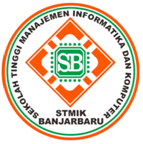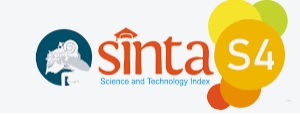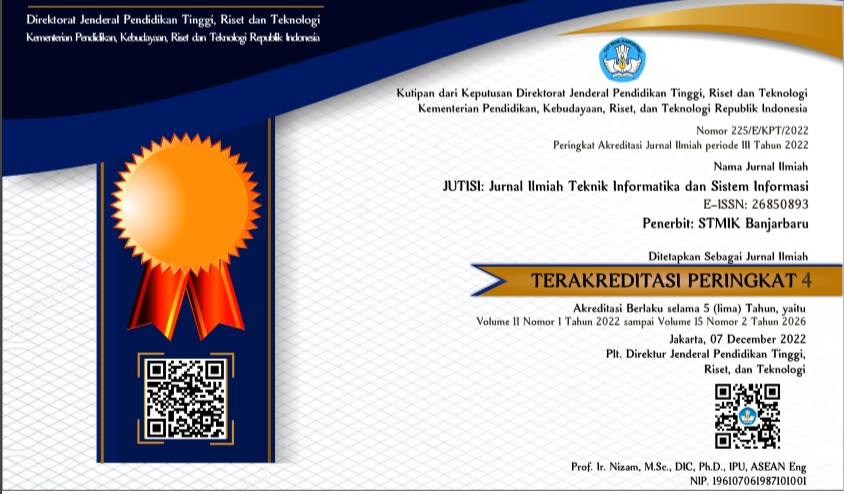Model E-Learning Adaptif Dengan Pendekatan Karakteristik Mahasiswa
Abstract
Abstrak
Penggunaan Teknologi Informasi dan Komunikasi sangat berpengaruh dalam kehidupan dan merupakan bagian yang sangat penting dalam menunjang Dunia Pendidikan. Teknik mengajar, cara belajar, dan proses pembelajaran berubah sehubungan dengan perkembangan Teknologi Informasi dan Komunikasi. Salah satu bentuk penerapan teknologi dan informasi di bidang pendidikan adalah adanya kelas virtual berbasis web atau E-Learning. Umumnya sistem E-Learning memberikan pembelajaran berbasis web sehingga siswa dapat mengakses kelas online yang sama melalui internet tanpa adaptasi berdasarkan profil dan perilaku masing-masing mahasiswa. Oleh karena itu banyak terdapat penelitian dengan focus kepada system E-Learning yang dapat menyesuaikan dengan karakteristik mahasiswa. System E-Learning yang menyesuaikan dengan karakteristik atau dengan salah satu karakteristik mahasiswa dikenal dengan system E-Learning adaptif. Tujuan dari system E-Learning adaftif salah satunya adalah untuk memberikan para mahasiswa konten yang sesuai dan diberikan pada waktu yang tepat. System E-Learning adaptif ini mampu menentukan tingkat pengetahuan, melacak penggunaan, dan mengatur konten secara otomatis untuk setiap siswa untuk mendapatkan hasil belajar yang terbaik. Penelitian ini mengusulkan system E-Learning yang dapat menginisialisasi konten sesuai dengan karakteristik mahasiswa. Sistem dapat melacak informasi dari mahasiswa mulai mengambil bahan ajar atau masuk ke kelas virtual, sampai mengambil ujian dan menyelesaikan suatu materi ajar. Tingkat pengetahuan mahasiswa, di tentukan berdasarkan nilai tes di awal pada saat mahasiswa melakukan pendaftaran masuk kelas virtual, kemudian hasilnya diperbarui ke dalam system E-Learning untuk digunakan dalam proses adaptasi.
Kata Kunci: Â E-Learning Adaptif, Teknik Adaptasi, Domain Model
Â
Abstract
The use of Information and Communication Technology is very influential in life and is a very important part in supporting the Education World. Teaching techniques, learning methods, and learning processes change with respect to the development of Information and Communication Technology. One form of application of technology and information in education is the existence of a web-based virtual class or E-Learning. Generally E-Learning system provides web-based learning so that students can access the same online class through the internet without adaptation based on the profile and behavior of each student. Therefore there are many researches with focus to E-Learning system that can adjust to the characteristics of students. E-Learning system that adapts to characteristics or with one of the characteristics of students is known as adaptive E-Learning system. The purpose of the E-Learning system is one of them is to provide students with the appropriate content and be given at the right time. This adaptive E-Learning system is able to determine the level of knowledge, track usage, and organize content automatically for each student to get the best possible learning outcomes. This study proposes an E-Learning system that can initialize content according to student characteristics. The system can track information from students starting to take teaching materials or enter virtual classes, to take exams and complete a teaching material. The level of student knowledge is determined based on the initial test scores when the student enrolls in the virtual classroom, then the results are updated into the E-Learning system for use in the adaptation process.
Keywords: Adaptive E-Learning, Adaptation Technique, Domain Model
References
Modritscher, F., Gutl, C., Garcia B., & Maurer, H. (2004). Enhancement of SCORM to support adaptive E-Learning within the scope of the research project AdeLE.
Esichaikul, V., Lamnoi, S., and Bechter, C. (2011) Student Modelling in Adaptive E-Learning Systems. Knowledge Management & E-Learning: An International Journal, 3, 342-355.
Dekson, D.E., & Suresh, E.S.M. (2010). Adaptive E-Learning techniques in the development of teaching Electronic Portfolio – A survey. International Journal of Engineering Science and Technology, 2(9), 4175-4181.
Mustafa, Y.E.A., & Sharif, S.M. (2011). An approach to adaptive E-Learning hypermedia system based on learning styles (AEHS-LS): implementation and evaluation. International journal of Library and Information Science, 3(1), 15-28.
Garlatti, S., Iksal, S., and Kervella, P. (1999) Adaptive On-Line Information System by means of a Task Model and Spatial Views. In 2nd Workshop on Adaptive Systems and User Modeling on the WWW, 55-69.
Hauger, D. and Köck, M. (2007) State of the Art of Adaptivity in E-Learning Platforms. In 15th Workshop on Adaptivity and User Modeling in Interactive Systems Halle/Saale, Germany, 355-360.
Paramythis, A. and Loild-Reisinger, S. (2004) Adaptive Learning Enviroments and eLearning Standarts. Electronic Journal on E-Learning, 2(1), 181-194.
How To Cite This :
Refbacks
- There are currently no refbacks.











